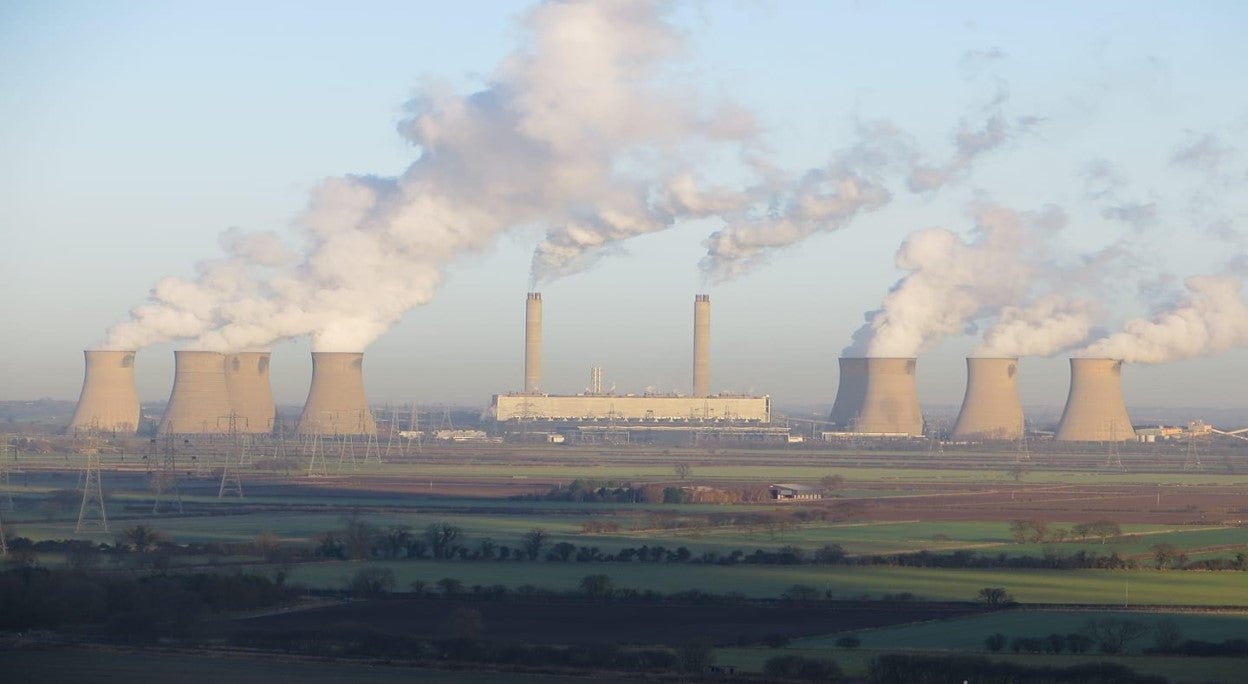Britain to be left with just one coal power plant by end of next year
Boris Johnson has pledged to end coal power generation in the UK by 2024

Your support helps us to tell the story
From reproductive rights to climate change to Big Tech, The Independent is on the ground when the story is developing. Whether it's investigating the financials of Elon Musk's pro-Trump PAC or producing our latest documentary, 'The A Word', which shines a light on the American women fighting for reproductive rights, we know how important it is to parse out the facts from the messaging.
At such a critical moment in US history, we need reporters on the ground. Your donation allows us to keep sending journalists to speak to both sides of the story.
The Independent is trusted by Americans across the entire political spectrum. And unlike many other quality news outlets, we choose not to lock Americans out of our reporting and analysis with paywalls. We believe quality journalism should be available to everyone, paid for by those who can afford it.
Your support makes all the difference.Britain will be left with just one coal-burning power station by the end of next year – bringing the country closer to its goal of ending use of the fossil fuel in electricity generation by 2024.
French energy company EDF announced plans on Monday to close its coal power plant in Nottinghamshire, which is called West Burton A, by September next year.
This will leave a second Nottinghamshire plant owned by the German energy company Uniper as the only station still burning coal for power in Britain by the end of 2022.
Matt Sykes, EDF’s managing director for the generation business, said in a statement: “West Burton A and its loyal workforce have played a critical role providing power to the UK for 55 years, including during this recent winter. Since 1966, the station has produced enough electricity to meet the needs of all UK households for more than four years, a truly incredible achievement.
“With EDF’s power generation strategy firmly focused on nuclear and renewables – and in this key year for UK leadership on climate change – we now believe it is the right time to provide clarity to our employees and all those connected to the site.”
Read more:
- Far-right is co-opting environmentalism to justify anti-immigration and anti-Semitic views
- UK ‘halfway to net zero’ due to dip in emissions caused by coronavirus pandemic
- How bad is bitcoin for the environment really?
- Climate change disproportionately affects women – but they can also provide the solution
The UK has rapidly moved away from coal-fired power in the last decade. In 2012, coal generated 41 per cent of the country’s electricity. By 2019, it supplied just 2 per cent.
North Yorkshire power station Drax ended commercial generation at its two remaining coal units earlier this month, and is expected to shut them down for good by September 2022.
Northern Ireland’s Kilroot coal plant is to be converted to a gas-fired station by 2023. This station is not part of the National Grid’s network and is instead part of Ireland’s network.
Coal is the most polluting of the fossil fuels. The government hopes to convince all countries to stop building new coal-fired power stations at Cop26, a climate conference that is to be held in Glasgow later this year.
UN chief Antonio Guterres has also called for all countries to end their “deadly addiction to coal”.
At a summit held earlier this month, he described ending the use of coal in electricity generation as the “single most important step” to meeting the goals of the Paris Agreement, the historic climate deal made by countries in 2015.
Phil MacDonald, chief operating officer at Ember, a climate think tank, told The Independent: “It’s great news that the coal phase-out is almost complete, and important that the majority of the coal is being replaced by wind and solar power, not fossil gas.
“The UK coal phase-out started a domino effect which has led to coal phase-out commitments across the planet.
“However, the UK government’s focus must be on finishing the job with a gas phase-out. The Climate Change Committee is recommending a gas phase-out by 2035, and a government commitment on this will cement the UK’s position as a climate leader.”
Join our commenting forum
Join thought-provoking conversations, follow other Independent readers and see their replies
Comments